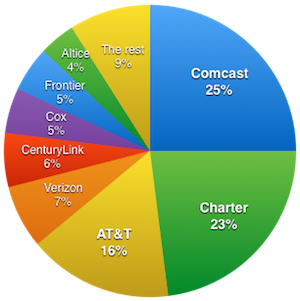CPUC votes to let telcos fine themselves, keep the money

Miss me yet?
In the most cynical decision I’ve ever seen the California Public Utilities Commission make, telephone companies will be allowed to pay fines to themselves, if they fail to meet service quality standards.
Fines, it seems, are just another cost of doing business for telecoms companies and don’t matter anyway. So why not let them keep the money?
Boiled down, that’s CPUC president Michael Picker’s rationale for establishing new telephone voice service level requirements backed up by a swingeing schedule of penalties and then saying but we’ll let you keep the money if you invest it in infrastructure or pay staff.… More

![By Erikoinentunnus (Own work) [CC BY-SA 3.0 (https://creativecommons.org/licenses/by-sa/3.0)], via Wikimedia Commons](https://www.tellusventure.com/images/2016/8/meat_cutting.jpg)


![By It is unclear as to whether the press-materials were distributed by publicity agencies representing the respective subjects or if they were distributed by the producers of the respective projects they were a part of at the time(s) of publication (c. 1968 and/or c. 1970). [Public domain], via Wikimedia Commons](https://www.tellusventure.com/images/2016/8/witch_and_dorothy.jpg)
![By Chris Potter (Flickr: 3D Judges Gavel) [CC BY 2.0 (https://creativecommons.org/licenses/by/2.0)], via Wikimedia Commons](https://www.tellusventure.com/images/2016/8/gavel.jpg)
![By Farragutful (Own work) [CC BY-SA 3.0 (https://creativecommons.org/licenses/by-sa/3.0)], via Wikimedia Commons](https://www.tellusventure.com/images/2016/7/cherry_blossoms_jefferson_memorial.jpg)
![By Jessie Eastland (Own work) [CC BY-SA 4.0 (https://creativecommons.org/licenses/by-sa/4.0)], via Wikimedia Commons](https://www.tellusventure.com/images/2016/8/sunset.jpg)
![By Srosenow 98 (Own work) [Attribution], via Wikimedia Commons](https://www.tellusventure.com/images/2016/8/greenlight.jpg)
